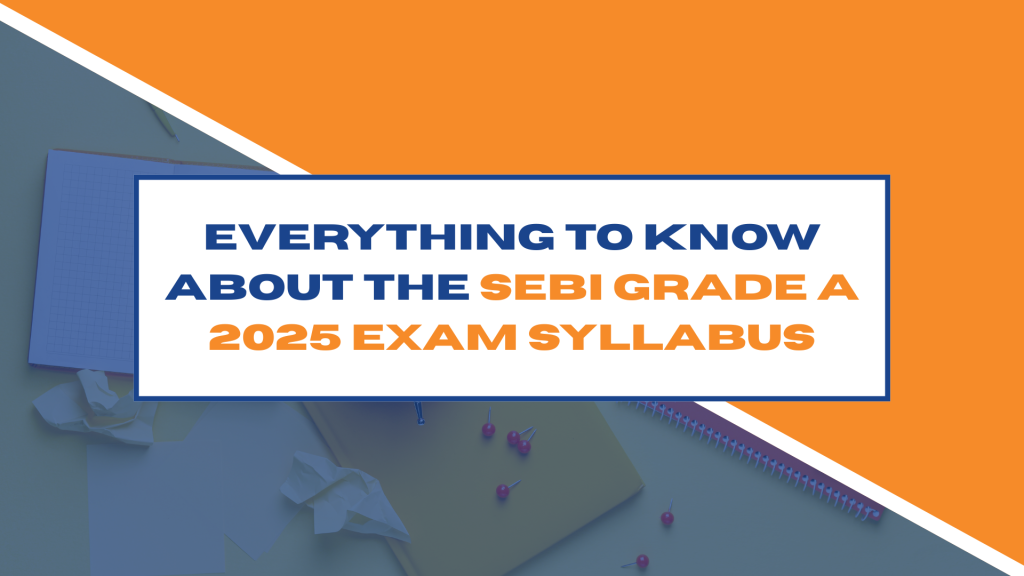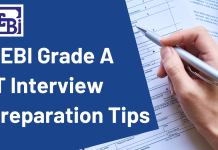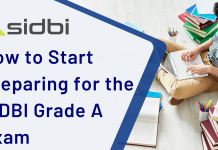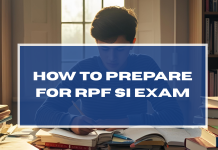As the financial landscape continues to evolve, the role of regulatory bodies becomes increasingly vital. In this regard, the Securities and Exchange Board of India (SEBI) stands as a cornerstone, tirelessly working to maintain the integrity and efficiency of the securities market. Established in 1988, SEBI has been instrumental in shaping the financial sector, and each year, it opens its doors to aspiring professionals through the SEBI Grade A Officer recruitment.
The eagerly awaited Sebi Grade A exam notification for the year 2025 is on the horizon, promising new opportunities for candidates across various streams such as General, Legal, Information Technology, Research, and Rajbhasha Adhikari. While the official notification is yet to be released, prospective candidates can glean valuable insights from previous years’ information to kick-start their preparations.
For those eyeing the SEBI Grade A Legal examination, the notification for 2023 was unveiled on June 22, providing a comprehensive roadmap for aspirants. The intricate details of the SEBI Grade A Legal exam 2023, including eligibility criteria, application process, exam pattern, and syllabus, have been thoroughly discussed on our website. This serves as a valuable resource for future candidates looking to excel in the SEBI Law Officer exam.
As we eagerly anticipate the official release of the Sebi Grade A Officer recruitment notification for 2025, this blog aims to equip aspirants with a sneak peek into the previous year’s information. From understanding eligibility criteria to decoding the exam pattern and syllabus, our goal is to provide a holistic overview that aids in meticulous preparation.

In the coming sections, we will delve into the highlights of the SEBI Grade A 2025 syllabus, offering a detailed perspective on what candidates can expect and how they can navigate the path to success. Stay tuned for a comprehensive guide that unravels the intricacies of the SEBI Grade A examination, laying the foundation for a successful career in the dynamic world of securities regulation.
SEBI Grade A 2025: Eligibility Criteria
The SEBI Grade A eligibility criteria for the upcoming 2025 exam are highly anticipated. While the official announcement is pending, insights gleaned from past criteria offer valuable information. Prospective candidates aiming for the SEBI Grade A exam should generally meet the age limit of 30 years. Educational qualifications comprise a Master’s Degree in any discipline, a Bachelor’s Degree in Law, or a Bachelor’s Degree in Engineering from a recognized university. Additionally, candidates holding qualifications like CA/CFA/CS/CWA are eligible. Indian citizenship is a prerequisite for applicants seeking the SEBI Grade A Assistant Manager post, and individuals from foreign or neighboring countries are ineligible. Notably, the SEBI Grade A 2025 exam presents an advantageous opportunity for fresh graduates, as no minimum work experience is required for the officer position. A detailed overview of the SEBI Grade A 2025 Eligibility Criteria can be found in the table below.
| Eligibility Criteria | Details |
| Age Limit | Up to 30 years |
| Educational Qualification | Master’s Degree, Law Degree, Engineering Degree, CA/CFA/CS/CWA |
| Citizenship | Indian citizens only |
| Work Experience | No minimum work experience is required |
SEBI Grade A 2025: Exam Pattern and Syllabus
SEBI is yet to officially announce the notification and exam pattern for the SEBI Grade A exam 2025. However, prospective candidates can gain insights from the SEBI Grade A 2023 exam pattern. The anticipated Phase 1 exam is expected to consist of two objective papers covering General Awareness and subject-specific topics. Paper 1 is likely to include General Awareness, Financial Awareness, and Quantitative Reasoning applicable to all streams. Paper 2 is expected to be stream-specific, covering Commerce, Accountancy, Management, Finance, Costing, Company Act, and Economics.
Phase 1 is expected to be a qualifying round, with marks considered only for short-listing candidates for Phase 2. The SEBI Grade A 2025 exam pattern for Phase 2 is projected to include Descriptive English and subject-specific papers. The Descriptive English paper is assigned a weight age of 1/3rd, while the subject-specific paper holds a weightage of 2/3rd. A prospective aggregate cut-off of 50% is anticipated for Phase 2. Aspirants are advised to use the SEBI Grade A 2023 exam pattern as a provisional guide for preparation until the official notification for SEBI Grade A 2025 is released. Staying updated is crucial for accurate and detailed preparation. The exam pattern for both Phase 1 and Phase 2 is outlined in the table below.
| Stream / Subject | Maximum Marks | Duration(minutes) |
| Paper 1 | ||
| All Streams: Multiple choice questions on the subjects viz. General Awareness (including some questions related to the Financial Sector of easy to moderate difficulty level), English Language, Quantitative Aptitude, and Test of Reasoning. | 100 | 60 |
| Paper 2 | ||
| General Stream: Multiple choice questions on subjects Commerce, Accountancy, Management, Finance, Costing, Companies Act and Economics | 100 | 40 |
| Legal, Information Technology, Official Language Stream: Multiple-choice questions on specialized subject related to stream. | ||
| Research Stream:- Multiple-choice questions on subjects Economics, Econometrics, Statistics, Finance and Commerce. | ||
To succeed in the SEBI Grade A exam 2025, a thorough grasp of the syllabus is crucial. Phase 1 comprises two papers, with Paper 1 being uniform for all streams. It covers Quantitative Aptitude, English, General Awareness, and Reasoning, encompassing diverse topics from mathematical concepts to grammar and current affairs. In Paper 2, tailored to Commerce & Accountancy, Management, Finance, Costing, Company Act, and Economics, candidates can anticipate questions on accounting standards, financial analysis, management processes, leadership styles, financial markets, derivatives, costing methods, and legal aspects like the Companies Act, 2013. This comprehensive syllabus serves as an indispensable guide for SEBI Grade A 2025 aspirants, facilitating focused and effective preparation. Refer to the table below for a detailed breakdown of the SEBI Grade A 2025 Syllabus.
| Section | Topics |
|---|---|
| General Awareness | Monetary Policies, Banking and Financial Awareness, Economic Terms, Current Affairs, Static GK, Financial and Economic News, Government Schemes. Agreement & Deals, Banking Terms- rates & processes, National Institutions, BeePedia |
| English | Grammar, Vocabulary, Reading Comprehension, Passage Making, Error Spotting, Jumble Words, Sentence Framing, Fill in the blanks |
| Reasoning | Puzzles, Seating Arrangement- Circular, Square & Linear, Data Sufficiency, Directions and Distance, Coding Decoding, Blood relations, Inequality, Syllogism, Machine input and output, Verbal Reasoning, Ordering and Ranking, Arrangement and Pattern, Scheduling, Distance and Direction, Ranking |
| Quantitative Aptitude | Simplification and approximation, Number Series, Quadratic Equation, Number System / HCF & LCM, Ratio and Proportion, Average, Partnership, Ages, Percentage, Profit & Loss, Time, Speed & Distance, Problems on Trains, Boat and Stream, Time & Work / Pipes and Cisterns, Simple and Compound Interest, Mixture & Allegations, Permutation and Combination, Probability, Data Interpretation (DI), Caselet DI and Data Sufficiency |
| Commerce & Accountancy | Accounting as a financial information system.Accounting Standards specifically refer to Accounting for Depreciation, Inventories, Revenue Recognition, Fixed Assets, Foreign Exchange Transactions, Investments.Cash Flow Statement, Fund flow statement, Financial statement analysis; Ratio analysis.Accounting for Share Capital Transactions including Bonus Shares, Right Shares.Employees Stock Option and Buy-Back of Securities.Preparation and Presentation of Company Final Accounts |
| Management | Management: its nature and scope; The Management Processes; Planning, Organization, Staffing, Directing and Controlling.The Role of a Manager in an Organization. Leadership: The Tasks of a Leader.Leadership Styles; Leadership Theories; A successful Leader versus an effective Leader.Human Resource Development: Concept of HRD; Goals of HRD.Motivation, Morale and Incentives: Theories of Motivation; How Managers Motivate; Concept of Morale; Factors determining morale; Role of Incentives in Building up Morale.Communication: Steps in the Communication Process; Communication Channels; Oral versus Written Communication; Verbal versus non-verbal Communication; upward, downward and lateral communication; Barriers to Communication, Role of Information Technology. |
| Finance | Financial System, Financial Markets, Basics of Derivatives: Forward, Futures and Swap.Recent Developments in the Financial Sector.Financial Inclusion- use of technology.Alternate source of finance, private and social cost-benefit, Public-Private Partnership.Direct and Indirect taxes; Non-tax sources of Revenue, GST, Finance Commission, Fiscal Policy, Fiscal Responsibility and Budget Management Act (FRBM).Inflation: Definition, trends, estimates, consequences, and remedies (control): WPI, CPI – components and trends. |
| Costing | Overview of Cost and Management Accounting – Introduction to Cost and Management Accounting, Objectives and Scope of Cost and Management Accounting, Methods of Costing – Single Output/ Unit Costing, Job Costing, Batch Costing, Contract Costing, Process/ Operation Costing, Costing of Service Sectors, Basics of Cost Control and Analysis – Standard Costing.Marginal Costing.Budget and Budgetary Control, Lean System and Innovation |
| Companies Act | The Companies Act, 2013 – Specific reference to Chapter III, Chapter IV, Chapter VIII, Chapter X, Chapter XI, Chapter XII and Chapter XXVII. |
| Economics | Demand and Supply, Market Structures, National Income: Concepts and Measurement, Classical & Keynesian Approach Determination of output and employment, Consumption Function, Investment Function, Multiplier and Accelerator, Demand and Supply for Money , IS – LM, Inflation and Phillips Curve, Business Cycles, Balance of Payments, Foreign Exchange Markets, Inflation, Monetary and Fiscal Policy, Non-banking Financial Institutions. |
SEBI Grade A 2025: Complete Syllabus and Study Guide
Prepare for success in the SEBI Grade A 2025 exam with ixamBee’s comprehensive resources. Our resource covers the complete syllabus, including subjects like Commerce & Accountancy, Management, Finance, Costing, Companies Act, and Economics, which is explained below. You can also check out the SEBI Grade A Free Mock Tests and Previous Year Papers to refine your skills and enhance exam readiness. With ixamBee, equip yourself for the challenges of the SEBI Grade A exam and pave the way to a successful career in securities regulation.
Commerce & Accountancy
Syllabus: In the Commerce & Accountancy segment of the Sebi Grade A syllabus, candidates delve into various facets of financial management. Topics encompass accounting as a financial information system, with a focus on accounting standards relating to depreciation, inventories, revenue recognition, fixed assets, foreign exchange transactions, and investments. The syllabus also covers cash flow statements, fund flow statements, financial statement analysis, ratio analysis, and specifics of share capital transactions, including bonus shares, right shares, employee stock options, and buy-back of securities. Additionally, candidates gain insights into the preparation and presentation of company final accounts, providing a comprehensive understanding of financial reporting and regulatory compliance in the capital markets.
What to Study: This section emphasizes a targeted study approach, concentrating on corporate financial statements and intricacies related to share capital within the context of SEBI being the capital markets regulator. Given that companies raise capital in these markets, aspirants are urged to center their focus on topics such as accounting for share capital transactions. It is crucial to maintain a perspective aligned with the regulatory role of SEBI. Additionally, awareness that themes like financial statement analysis and ratio analysis are shared with the RBI Grade B syllabus underscores their significance in preparation for a comprehensive understanding of financial market regulations.
ixamBee Resources to Use: Half of the syllabus is already covered in ixambee’s SEBI Grade A Online Course, which also addresses topics shared with the RBI Grade B syllabus, such as financial statement analysis and ratio analysis. The remaining content is actively being incorporated daily by our faculty in a concise and exam-focused format, ensuring a comprehensive and up-to-date preparation for aspiring candidates.
Management
Syllabus: In the Management section of the SEBI Grade A syllabus, candidates explore the nature and scope of management, including key processes like planning, organization, staffing, directing, and controlling. The role of a manager in an organization is analyzed, emphasizing leadership tasks and styles, distinguishing between successful and effective leadership. Human resources development is covered, encompassing the concept, goals, motivation theories, and the role of incentives in fostering morale. Communication, including its steps, channels, and barriers, is explored, highlighting the integration of information technology. This comprehensive syllabus ensures a thorough understanding of management principles vital for SEBI Grade Aspirants.
What to Study: Concentrate specifically on Human Resource Management topics in this section, as the syllabus does not necessitate exhaustive knowledge. Notably, this syllabus aligns with RBI Grade B preparation, emphasizing the shared relevance of the material. The emphasis on Human Resource Development, motivation theories, and the role of incentives in morale-building underscores the practical aspects essential for effective management. This strategic focus allows candidates to streamline their preparation, recognizing the common ground with RBI Grade B and emphasizing key concepts essential for both examinations.
ixamBee Resources to Use: Every facet of the syllabus is meticulously covered in our course, offering candidates a comprehensive understanding and thorough preparation for the Sebi Grade A exam.
Finance
Syllabus: Under the Finance segment (C) of the Sebi Grade A syllabus, candidates delve into the intricacies of the financial system, understanding the roles and functions of regulatory bodies. The syllabus further covers both primary and secondary markets, including Forex, Money, Bond, and Equity markets, exploring their functions, instruments, and recent developments. Candidates also study diverse financial topics, such as basics of derivatives, financial inclusion through technology, alternate sources of finance, and the impact of direct and indirect taxes. Additionally, the syllabus delves into inflation, its definition, trends, estimates, consequences, and control remedies, incorporating components like WPI and CPI.
What to Study:These subjects were integral to the previous year’s exam pattern and share common ground with the RBI Grade B exam syllabus. Emphasis should be placed on understanding concepts related to financial markets, fiscal policy, and monetary policy, with a special focus on inflation. Additionally, candidates are encouraged to delve into current affairs pertaining to the financial markets and the economy in this section. This approach ensures a comprehensive preparation strategy, aligning with both historical exam patterns and the concurrent requirements of the SEBI Grade A and RBI Grade B exam.
ixamBee Resources to Use: The entire content, inclusive of subjects like financial markets, fiscal policy, and monetary policy, is thoroughly addressed within our comprehensive course, ensuring effective and detailed preparation.
Costing:
Syllabus: The Costing segment (D) in the SEBI Grade A syllabus encompasses a comprehensive study of Cost and Management Accounting, covering its introduction, objectives, and scope. It delves into various methods of costing, including Single Output/Unit Costing, Job Costing, Batch Costing, Contract Costing, Process/Operation Costing, and costing of Services Sectors. Candidates explore basics of cost control and analysis through Standard Costing, Marginal Costing, and Budgetary Control. Furthermore, the syllabus extends to Lean System and Innovation, covering concepts like Just-in-Time, Kaizen Costing, 5Ss, Total Productive Maintenance, Cellular Manufacturing, Six Sigma, Process Innovation, and Business Process Re-engineering. This detailed coverage ensures a holistic understanding of cost-related principles.
What to Study:This particular topic introduces novel aspects, necessitating candidates to concentrate on methods of costing and lean systems. The emphasis lies on understanding intricacies related to various costing methodologies and the principles of lean systems. Aspirants should allocate dedicated study time to grasp these newer components, ensuring a thorough comprehension of their application within the context of SEBI Grade A. This focused approach enhances candidates’ preparedness for addressing questions related to methods of costing and lean systems in the upcoming examination.
ixamBee Resources to Use: Our esteemed faculty, Neha Arora, consistently contributes by adding content on a daily basis to the Accounts section. Additionally, Neha Mam conducts regular live sessions, providing students with dynamic and interactive learning experiences to enhance their understanding and preparation for the SEBI Grade A exam. This ensures that our course content remains updated, relevant, and aligned with the latest developments, offering candidates a comprehensive and engaging learning environment.
Companies Act
Syllabus: The study of the Companies Act, 2013 under the SEBI Grade A syllabus involves a focused examination of specific chapters, namely Chapter III, Chapter IV, Chapter VIII Chapter X, Chapter XI, Chapter XII, and Chapter XXVII. Candidates are required to gain a detailed understanding of the regulations and provisions outlined in these chapters, with an emphasis on their relevance to the securities market. This targeted approach ensures that aspirants acquire a nuanced comprehension of the legal framework governing companies, particularly as it pertains to issues such as prospectus and allotment of securities, share capital, dividends, audit and auditors, director appointments, board meetings, and the functioning of the National Company Law Tribunal and appellate Tribunal.
What to Study: The study of the Companies Act, 2013 in the SEBI Grade A syllabus aligns with prior knowledge gained in Securities Markets. Examining specific chapters, such as Chapter III (Prospectus and allotment of Securities), Chapter IV (Share Capital and Debentures), Chapter VIII (Declaration and payment of dividend), Chapter X (Audit and Auditors), Chapter XI (Appointment and qualifications of Directors), Chapter XII (Meeting of Board and Its members), and Chapter XXVII (National Company Law Tribunal and appellate Tribunal), candidates delve into detailed aspects of public offerings, share capital, divided declaration, audit procedures, director appointments, board meetings, and legal proceedings, providing a comprehensive understanding of regulatory frameworks relevant to the securities market.
ixamBee Resources to Use: Substantial content pertinent to the Companies Act, 2013 is currently accessible, with ongoing updates in accordance with the Act’s provisions. This inclusive repository caters to aspirants preparing for the SEBI Grade A exam. Live sessions, conducted regularly, supplement this material, ensuring that candidates receive real-time insights and clarifications. The proactive approach of continually updating content aligns with the dynamic nature of regulatory frameworks, providing a comprehensive and up-to-date resource for aspirants navigating the complexities of the Companies Act in their exam preparation.
Economics
Syllabus: Under the Economics segment (F) of the SEBI Grade A syllabus, candidates delve into fundamental concepts like Demand and Supply, Market Structures, and National Income measurement, encompassing both Classical and Keynesian approaches. The syllabus extends to the intricate analysis of the determination of output and employment, Consumption Function, Investment Function, multiplier and Accelerator effects, demand and supply for money, IS-LM framework, inflation, Philips Curve, and Business Cycles. Additionally, candidates explore topics related to Balance of Payments, Foreign Exchange Markets, Inflation, Monetary and Fiscal Policy, and Non-banking Financial Institutions. This comprehensive coverage ensures a holistic understanding of macroeconomic principles, vital for SEBI Grade A exam preparation.
What to Study: In the Economics segment of the SEBI Grade A syllabus, candidates are advised to concentrate on fundamental Macro-and Microeconomic concepts. Emphasis should be placed on essential Macro concepts such as National Income (GDP, GDNP, etc.), inflation, fiscal policy, and foreign exchange (forex). This section bears resemblance to the ESI content in the previous year’s exam pattern. Notably, it is comparatively more straightforward as it excludes social issues, instead incorporating basic economic concepts tied to demand and supply, along with market structures at a Class 12 level. Aspirants are encouraged to supplement their preparation with current affairs relevant to these economic topics.
ixamBee Resources to Use: The SEBI Grade A syllabus Part B, which aligns with RBI Grade B content, is already covered in our course. It comprehensively addresses the essential topics, ensuring thorough preparation for candidates. Meanwhile, Part A is undergoing daily additions by our expert faculty to provide comprehensive coverage and keep aspiring candidates abreast of the latest updates. This dual focus ensures a well-rounded and up-to-date learning experience for SEBI Grade A exam preparation.
Summing Up
Prospective candidates preparing for the SEBI Grade A 2025 exam can benefit from a comprehensive understanding of the eligibility criteria, exam pattern, and syllabus. Aspirants should stay updated with the official notification for precise details. The detailed syllabus breakdown for various streams provides valuable insights, aiding focused preparation. Leveraging resources like online courses and live sessions from reputable platforms ensures a well-rounded and updated learning experience, enhancing the chances of success in this prestigious examination.
Preparing for the SEBI Grade A Exam 2025? Boost your chances of success with ixamBee’s SEBI Grade A Phase 1&2 Online Course, designed by expert faculty to cover the complete syllabus. Practice with SEBI Grade A Mock Tests and SEBI Grade A Phase 1 PYP to assess your preparation. Additionally, our Target Banking Online Course ensures comprehensive learning for banking aspirants. Enroll today and take a step closer to your dream career!
ixamBee specializes in providing expert guidance and resources for banking exams 2025, ensuring that you are well-prepared for the Upcoming Bank Exams like RBI Grade B, NABARD Grade B, IBPS SO, and more. Our courses align with the bank exam calendar 2024, covering all the essential topics. With a focus on the upcoming bank jobs, our Previous Year Papers, BeePedia, SSC CGL, SSC CHSL, SSC MTS and other Mock Tests are designed to help you excel in upcoming banking exams.
Also Read
How to Prepare for SEBI Grade A 2025 Exam
SEBI Grade A Exam: Proven Preparation Strategies for 2025
новый займ на карту без отказазайм 500 рубзайм на карту до 5000
















Sebi exam m legal stream se notes ho to plz comments ka reply kijiye
Hi Sonam, sorry to inform you that we do not provide the course for Legal Stream. However, you can go to our exam page for a detailed syllabus on Legal stream here: https://www.ixambee.com/exams/sebi-recruitment
Are B.com hons graduate students allowed to appear for the exam?
Is electrical engineer need to prepare for general stream syllabus in paper 2
Whether phase 2 (paper 1) is written or typing exam.